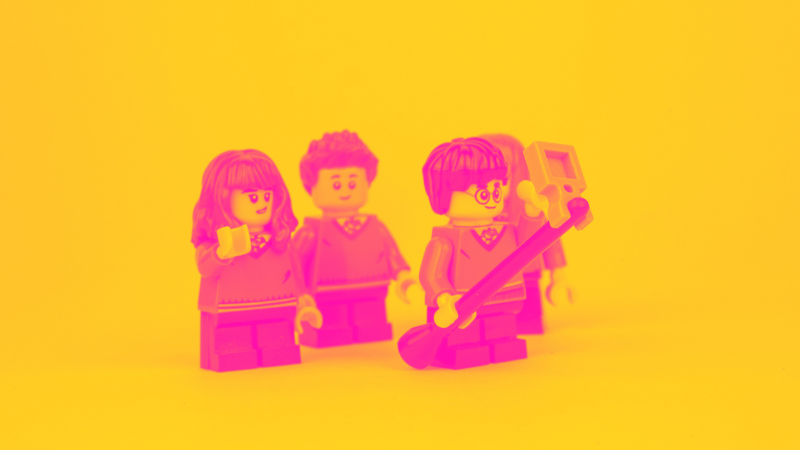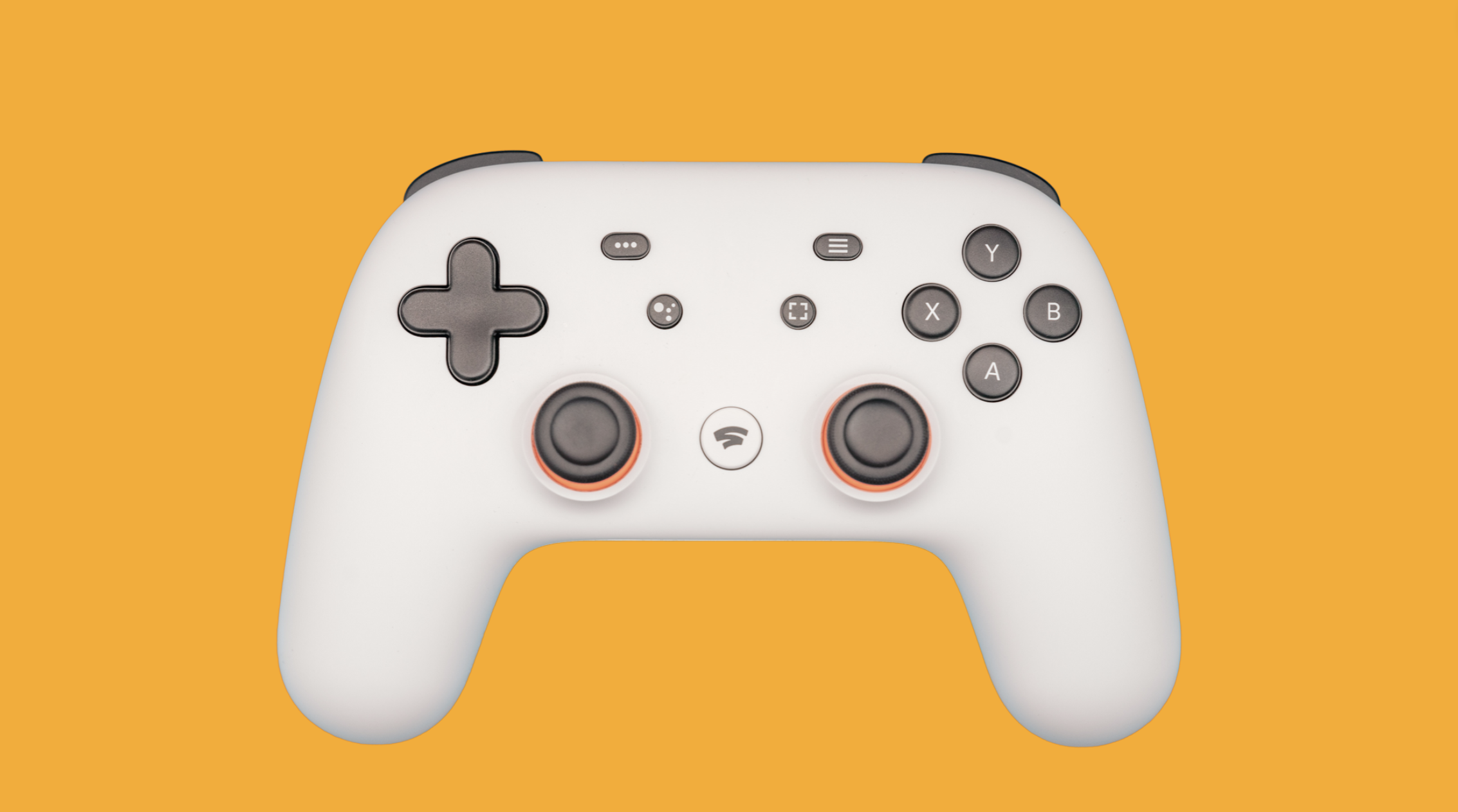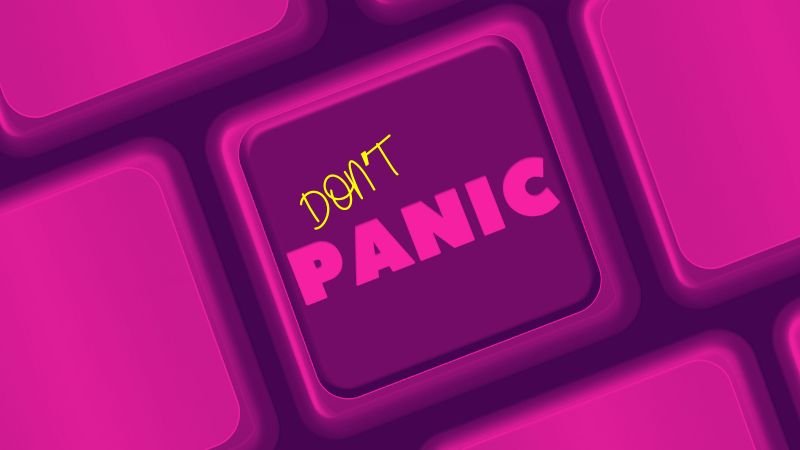Everyone wants these five colleagues* in 2024

From “prompt engineer” to “AI ethicist” to “avatar fashion designer” – new technology is not only eliminating jobs, it is also creating many new fields of activity. This inspired us to think about the hurdles that HR managers in particular are currently facing and what support, new roles or professions there should be in HR to overcome them. In the best “make a wish” style, we baked them these fantastic “wish colleagues” on the fly. The good thing is that many of the ingredients can already be found in AI applications. We’ll show you which ones.
1. Chief Talent Interpreter (CTI)

The Chief Talent Interpreter can read between the lines of CVs and questionnaires and recognize what remains hidden to others even on the second and third screen. He is a kind of crystal ball on two legs. And the results of its work are nothing short of magical.
After all, CVs and self-assessments provide HR with an initial impression of candidates and their suitability for certain positions. But far too often, it’s only when they start the job that it becomes clear what makes the person behind the written word tick, whether they can fulfill their new role and fit into the team. If this is not the case, things can get uncomfortable. In any case, it will be expensive (been there, done that 🙄). The Chief Talent Interpreter knows how to prevent this.
🎮 Colleague AI: The technological crystal ball is based on Natural Language Processing (NLP) and can interpret nuances in written responses. With its support, HR managers can identify the characteristics in a candidate’s personality profile that are important for a role and assess whether a person will fit into the corporate culture. It therefore replaces CV analysis as well as time-consuming assessment and development centers.
2. Employee Wellbeing Analyst

He not only reads what you write, but also understands what you actually want to say. He decodes hidden messages and calls for help that are hidden subtly and unnoticed by readers in written communication. High-frequency nuances in emails or interviews are picked up by his highly sensitive antennae. This enables him to speak directly to the employees concerned and find out what they need, or give the manager a confident hint that a conversation would be useful.
🎮 Colleague AI: (Our) AI systems can already read psychological dimensions from written everyday communication. Meanwhile, researchers are continuing to work on training AI in emotional intelligence (EQ). This will enable AI systems to analyze human emotions and their impact on decisions in the future. Chatbots and virtual assistants will be able to recognize emotional nuances in communication and react to them, for example in employee interviews. Good for HR: AI-controlled tools will soon be able to offer them individual training and coaching programs to train their EQ.
3. Team Dynamics Engineer

This fantastic new colleague helps individual employees to understand themselves better and also promotes effective collaboration in teams. She can predict whether the chemistry between potential team colleagues will be right based on individual psychological profiles. After all, she knows that good teamwork depends not only on skills and tools, but also on the psychological preferences of the individual team members. Therefore, even after the team has started work, she tirelessly ensures that everyone has their own safe space to express themselves freely. She always keeps an eye on how the team is currently working together and where improvements are needed.
🎮 Colleague AI: …can already use NLP to analyze employee profiles in order to form teams that not only complement each other professionally, but are also psychologically compatible. Our “High-Performance Teams” AI, for example, divides work into six basic roles. This helps employees to assess for themselves how they can and want to work. Also which role they should therefore take on in the team.
4. Customized Development Pathfinder

The “design and deliver” principle, whereby career options are set out once in the company and then never touched again. Has long since been overtaken by reality. In this reality, we have self-confident employees who want to decide for themselves when and in which direction they want to develop. At their own pace and according to their individual goals. The Customized Development Pathfinder supports them in this. He knows what each individual is good at and also gives a nudge forward when employees fall short of their potential.
🎮 Colleague AI: … also knows exactly what knowledge and skills lie dormant in the workforce. It uses psychological analyses of employees’ needs and aspirations to create personal development plans. Our zortifyGROW AI, for example, measures stable personality traits and adaptable personality states and links them to professional development. It uses a unique combination of the “Big Five Personality Traits” model, the “Entrepreneurial Capital Personality” model and the “Counterproductive Behavioral Tendencies” model. Nerdy by nature – and very accurate. 🤓
5. Chief Asshole Detector

The colleague with the swear word in his title is actually an extremely sensitive soul. He senses vibrations as soon as a person enters the room and reads precisely between the lines. He is not impressed by fancy titles and CVs; he has X-ray vision, looks behind the façade and analyzes with a cool head whether someone could damage the heart of the organization. With the right decision, he can prevent bad hires and save the company from high costs and a negative vibe among the workforce.
🎮 Colleague AI: … truly cannot be accused of being guided by sympathies and bad previous experiences when evaluating a person. It unemotionally analyzes the spoken and written word. Based on the results, it shows whether an applicant has narcissistic traits that could severely disrupt the company and poison the culture. AI can already see what humans cannot detect even on second glance. And would have reliably spared the national economy the 14 percent of narcissists in management roles.
What’s to come
2023 was a super exciting year for companies and for HR in particular. Artificial intelligence has opened up many new opportunities to place the right people in the right positions at the right time. In the end, that’s what makes HR work so valuable and also so fulfilling, isn’t it? And the development is continuing at a rapid pace. The tasks of all the dream colleagues described above can already be performed by just one AI.
What does this mean for other, non-fictional jobs? Will human labor become largely obsolete in the future? – Certainly for certain tasks. At the same time, there will be many new tasks that will require human and machine intelligence working side by side to achieve the best results. In 2024, companies will be all the more challenged to find the right balance between the two. And for those organizations that have not yet had any contact with AI, it’s time to get to grips with the topic and get started step by step. We have described how this can be done in another post.
We hope that you can spend a lot of time with the people who are good for you in the new year. Both in your private life and at work. Thanks to AI technology, the chances of this are good.
With this in mind: Happy 2024!

Quiet Thriving Over Quiet Quitting

Lead Effectively: Speak 20%, Actively Listen 80%!*
